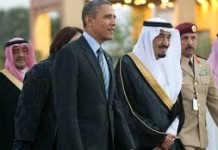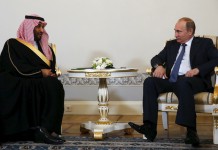In POLITACT’s analysis of the bombing in Peshawar, which occurred a little over a week ago, we pointed to some of the weaknesses in the civil security apparatus of the country, whose attitude and aptitude has still not shifted enough to deal effectively with the existing threat. This unresponsiveness was in evidence today when a wily bomber, dressed in paramilitary garb, walked unmolested past security personnel after requesting to use the restroom.
In this article, we examine the intent behind the bombing in more detail, as well as analyze the war of perceptions and perspectives relating to the ‘imminent’ operation in Waziristan. After all, these perceptions and perspectives will almost undoubtedly play an important role in the success of the operation.
Analysis
- Hakimullah Mehsud, widely believed to have died in a scuffle that broke out after Baitullah’s death, appeared at a press conference timed to be released after the WFP attack today, in order to lend credibility to the TTP’s claims to launch suicide attacks across the country. Both Pakistan and the US authorities have been reporting that the Tehreek-e-Taliban Pakistan (TTP) is in disarray due to the elimination of the senior leadership of the organization. Furthermore, Pakistan believes that as a result of the Pakistani Army’s successful operation in Swat and in other Tribal Agencies, the ability of the extremists to mount suicide and other destructive attacks across the country have been greatly reduced. The attacks in Peshawar last week and in Islamabad today are intended to disprove this narrative.
- Moreover, the bombing was intended as a message to the Pakistani army as it stands on the threshold of the Waziristan Operation. The extremists are saying that they can withstand the operation, as they did in the past, and continue unhindered attacks like the one today. These attacks are also intended to pressure the government into peace talks, like the one Mowlana Fazul-ur-Rehman of Jamatey Ulema Islam (JUI) initiated last week. His stated objective was to free Pakistan from American pressures to launch an operation in Waziristan. As recent public opinion surveys have shown, Pakistanis are overwhelmingly (by 80%) opposed to supporting the US in a war against extremism. Mowlana Fazl-ur-Rehman’s approach represents a sophisticated attempt to bank on mounting anti-American feeling in Pakistan.
- So it is apparent that public opinion in Pakistan is increasingly anti-American and anti-Taliban. The drone attacks in the Tribal Areas and conflicting messages emanating from the government, regarding not only its role in the drone operations but its relationship with the controversial civilian defense contractors (Blackwater and DynCorp), is discrediting the PPP government and other major politicians of the country, including PML-N’s Nawaz Sharif. The TTP aims to capitalize on growing public disenchantment; the media debate on the conditions of the Kerry-Lugar bill has further poisoned the atmosphere. Confusing statements from the government on critical matters are interpreted negatively and rumors are generally accepted as truth by the public.
- The TTP’s propaganda strategy is to depict these attacks as part of an insurgency, similar to that in Afghanistan, although, as stated above, public sentiment in Pakistan and other parts of the tribal belt has shifted decisively against TTP style Talibanism in the country. In addition, even the Afghan Taliban has distanced itself from the tactics and strategies of the Pakistani Taliban. While in southern Afghanistan the Taliban enjoy increasing public sympathy, the same cannot be said of the Pakistani Taliban, so they are thus clutching at straws.
- Another reason for targeting the UN affiliated World Food Program was to strike at the critical role of the humanitarian organizations. After all, their work goes a along way towards helping civilians displaced as a result of military operations; in Swat, for example. The assistance provided by these groups is proving instrumental in turning the otherwise apprehensive and confused Pushtun masses against the Taliban. These people are the ones who suffered the brunt of the Taliban’s inhuman brutality.
- Defense Secretary Robert Gates reiterated today that more time will be needed to come up with the right strategy for the Afghanistan Pakistan region. No doubt, the operation in Waziristan is on everyone’s mind. Once it unfolds, it will provide crucial clues as to whether the elimination of the TTP leadership has actually caused disarray and confusion amongst the Taliban rank-and-file, as has been widely reported in the media. Furthermore, the outcome of the operation will also establish whether the approach favored by Vice President Joe Biden, premised on more use of drones and less of soldiers, can be fruitful. Perhaps the most important factor behind the delay of the operation is Pakistan’s attempts to create more tribal wedges and keep Haji Nazir and Hafiz Gul Bahadur neutral while it is being carried out. For US the most critical element is how Pakistan deals with the Afghan Taliban.
- By announcing that the operation is imminent, the Pakistani Army is probably checking on TTP capabilities, to see if can still deliver on its threat regarding more suicide attacks across the country. This early warning is also probably designed to test the TTP’s capacity to withstand prolonged pressure.
Tell Us What You Think



